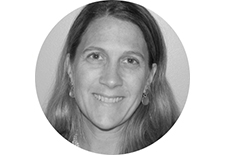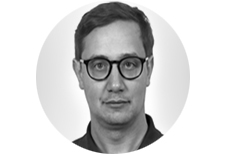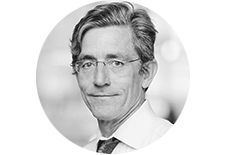StEP Supervisory Committee

The role of the Supervisory Committee is to provide guidance and support to the Executive Director in order to meet StEP’s objectives.
The Supervisory Committee is established on a broad geographical basis with representation from major stakeholders including business, governments, international organisations, academia and NGO whom have an interest in taking necessary actions associated with a sustainable solution of the e-waste problem. The Supervisory Committee consists of up to seven members serving in their individual capacities who are elected with simple majority by all StEP members.
Meet the StEP Supervisory Committee
Stephanie Adrian is the senior international electronic waste policy advisor in the Office of International and Tribal Affairs (OITA) at the United States Environmental Protection Agency in Washington, DC.
She has worked on international issues since 1999 and is a lead on global policy issues related to international electronic waste and the Basel Convention.
She has an undergraduate degree in biology from the University of Connecticut and a Masters in Public Health from Johns Hopkins Bloomberg School of Public Health and Hygiene.
Her interest in environmental health originated during her two years spent living and working as a public health specialist with impoverished communities in the Dominican Republic.
Alexander Batteiger is an advisor to the GIZ global advisory project on sustainable waste management and circular economy. Till the beginning of 2020 he worked for the ‘Sustainable Management and Disposal of E-waste in Ghana’ project. Before, he was a researcher at the ‘Microenergy Systems Research Group‘ at Technische Universität Berlin focussing on the interlinks between rural electrification and future domestic e-waste flows. He holds an degree in industrial engineering and management with a special focus on energy related topics from TU Berlin.
Heinz Böni has a degree in Rural and Environmental Engineering from ETH Zürich with postgraduate studies in Water Supply and Wastewater Management. He worked as a scientist, in development cooperation and more than 10 years as engineer and consultant in Waste and Resources Management in Switzerland.
At Empa he is head of the research group CARE – Critical Materials and Resource Efficiency. His scope of work covers research in WEEE recycling, auditing WEEE recycling companies and capacity building in WEEE management in developing countries.
Garth Hickle serves as a board member of the Global Product Stewardship Council and the Sustainable Electronics Recycling Initiative (SERI). He is also a Senior Lecturer and Visiting Scholar at the University of Minnesota. He has published in the Journal of Industrial Ecology, Journal of Cleaner Production, Resource Conservation and Recycling and Business Strategy and the Environment. Garth has a strong emphasis on environmental product policy and the circular economy. Previously, he led the product stewardship program for the Minnesota Pollution Control Agency (MPCA).
Pascal Leroy has, for the past twenty years, worked at international level in the field of electronic waste management and policies, first as chief lobbyist at APPLiA, and since 2007 as Director General of the WEEE Forum, a worldwide association representing forty producer responsibility organisations. Together with its members, the WEEE Forum are at the forefront of turning the extended producer responsibility principle into an effective electronic waste management policy approach through its combined knowledge of the technical, business and operational aspects of collection, logistics, de-pollution, processing, preparing for reuse and reporting of e-waste. Our mission is to be the world’s foremost e-waste competence centre excelling in the implementation of the circularity principle. Leroy is an expert in communication on complex, supra-national environmental legislation and policy, in particular electronic waste recycling, and environmental challenges.
* Chair of the Supervisory Committee




